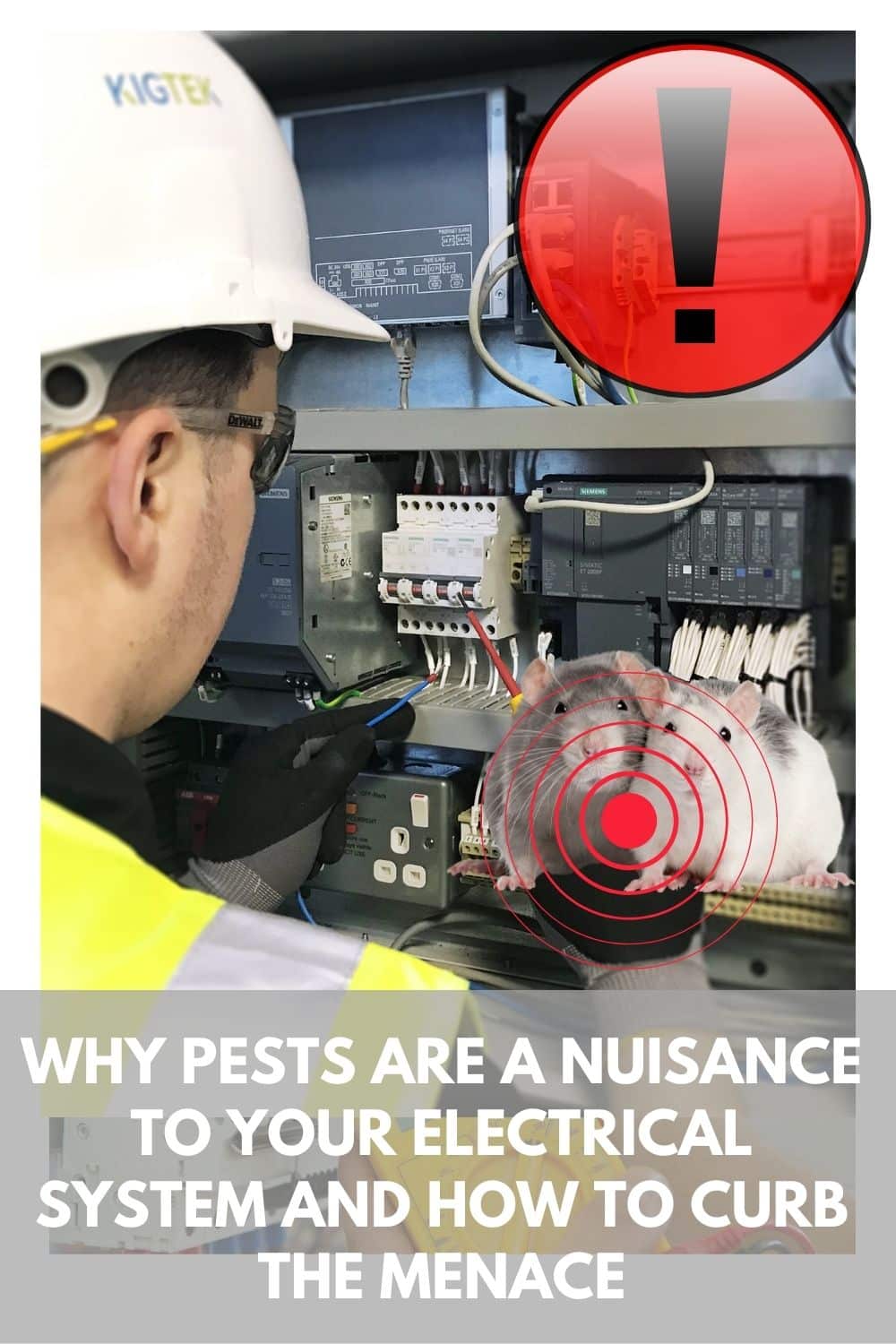Pests may seem minor, but they cause significant problems to electrical systems. They access the system through tiny openings and cause severe damage. Some issues you may start experiencing are power surges, short circuits, and fires.
Pests can also spread diseases to humans and animals. If you suspect they are causing problems to your electrical system, take action immediately. However, don’t try to fix the problem yourself; always call a dependable electrician.
Why are Pests a Problem for Your Electrical System?
Pests like rats, mice, squirrels, and raccoons gnaw wires causing shorts and power surges. This could lead to a fire, as well as costly repairs. Rodents are responsible for 25% of all fires that originate from electrical wiring. They also carry diseases, such as the hantavirus and Lyme disease.
Pests can also be a problem for your air conditioner. Wasps, bees, and hornets build nests in the units restricting airflow and damaging the coils. It causes your air conditioner to work harder, use more energy, and increase utility bills.
Another concern is damage to your plumbing unit, causing leaks that lead to electrical shorts. Regularly check pipes around your home for water leaks and have them repaired as soon as possible. Pay more attention to the attic, basement, and crawl spaces, as these areas are more prone to leaks.
The waste left in electrical units by pests can also lead to corrosion. Have the electrical system checked and cleaned regularly by a professional. Do the same to all the appliances as corrosion can also affect them.
How to Keep Pests Away from Your Electrical System
The best way to keep pests away from your electrical system is to have professional inspections. The experts will identify any problems and make necessary repairs. Seal any cracks or openings around your home, preventing pests from getting inside and causing damage.
Additionally, clean up any food or water sources that might attract pests. Keep your kitchen clean and free of crumbs, store food in airtight containers, and take out the trash regularly. If you have pets, keep their food and water dishes clean. Remember to trim any trees or bushes around your home and periodically fumigate even when there’s no visible infestation.
What Not To Do
Naturally, you’ll want to take care of a pest problem as soon as possible, but there are things you should not do. First, don’t try to exterminate them by yourself, especially when lodged inside outlets, switch plates, or breaker boxes.
Second, don’t spray insecticide or poison around the electrical system as this could cause even more damage. These products should only be used by a professional. Spraying chemicals on damaged wires could ignite a fire.
To remove debris, pest waste, and nesting materials, call a professional with the experience and equipment to do so safely. You risk getting bit or stung or starting a fire. An electrician will assess the issue and seek the services of an experienced pest control company when the infestation is extensive.
Repair the Damage After Getting Rid of the Pests
After pest removal or fumigation, it’s time to focus on repairs. If you have some experience and there are a few chewed wires, simply cut off the damaged part of the wire and connect the two ends with electrical tape or wire nuts. If the damage is more extensive, call a professional.
If there is water damage, have it repaired as soon as possible to prevent further damage. A professional will identify any leaks and make the necessary repairs.
Other Measures to Take
If you’re experiencing recurring infestations, here are additional measures to curb the menace.
Identify The Type of Pests
Understanding the pest problems in your area enables you to take the necessary precautions. For instance, don’t store firewood near the house if snakes are a problem. Also, keep the bushes, trees, and grass around your home trimmed. A rodent infestation will quickly attract snakes to your property. Take action as soon as you detect rodents on your property.
Use Pest Repellents
There are various types of pest repellents available on the market. Use them around your electrical system to keep pests away. The most effective repellents include ultrasonic, electromagnetic, and chemical pest repellents. Consult a professional to determine which option will work best for your situation.
Seal All Entry Points
Install door sweeps and repair any cracks in the foundation or exterior walls. Check the screens on your doors and windows for holes. Caulk any gaps around plumbing fixtures, electrical outlets, and switches. Additionally, ensure your chimney is capped, and there are no gaps around ductwork, vents, or other openings.
Declutter Your Home
Decluttering also reduces the chances of having a pest problem. Get rid of items you don’t need and organize your belongings. Don’t let piles of clothes, books, magazines, or other items accumulate.
Pests hide in dark, cluttered places. Have enough light in all the rooms, closets, and storage areas. Periodically check under the sink, cupboards, and other storage areas for signs of pests.
Keep Your Home Safe
When you spot pests, take action immediately to prevent a widespread infestation. Don’t hesitate to contact a professional when experiencing problems with your electrical system. They will identify the problem and make the necessary repairs to keep your home safe.





Leave a Reply